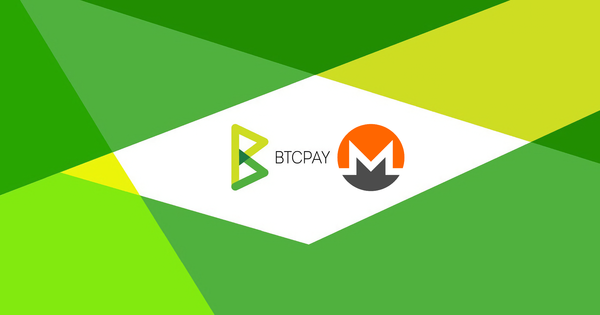How to Store Bitcoin
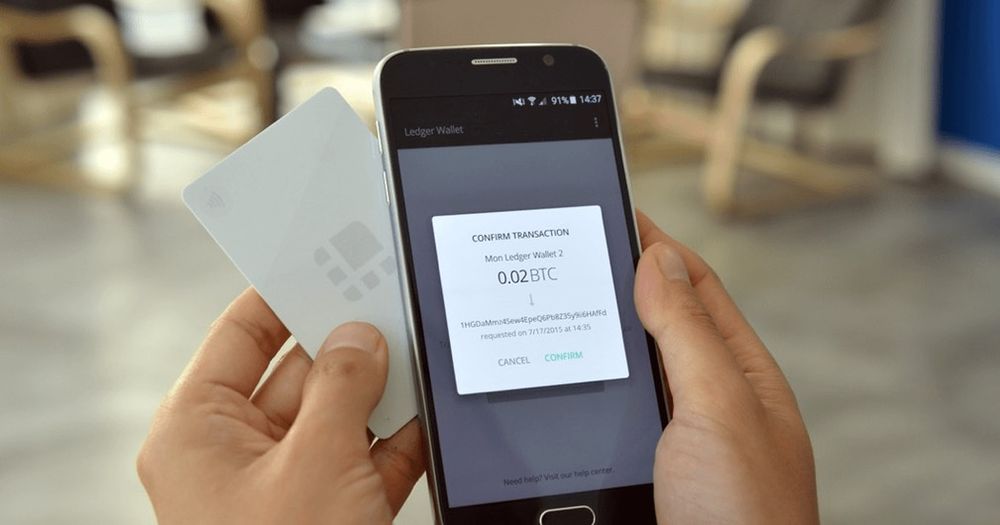
Your bitcoins are stored in a specialized software called a "wallet." This software serves as a digital container that holds your private keys, which are essential for authorizing transactions and spending your coins. Additionally, the wallet stores your public keys and wallet addresses that you can share with users to send bitcoins to you.
Moreover, wallets often offer basic cryptographic features, such as digitally signing messages. This functionality allows you to verify the authenticity of your digital interactions and provide proof of ownership or authorship when required.
Wallets can be broadly categorized into two main types based on their level of security: hot wallets and cold wallets.
When considering which type of wallet to use, it is essential to evaluate your specific needs and prioritize security based on the amount of bitcoins you possess and your usage patterns. A combination of hot and cold wallets can provide both convenience and security, allowing you to access your bitcoins easily while ensuring their protection.
Cold Storage
When it comes to securely storing private keys offline, there are several options to consider.
One popular method is to use a hardware wallet. These physical devices are specifically designed to generate and store private keys in a secure environment, separate from the internet. By keeping the private keys offline, hardware wallets offer excellent protection against potential hacking attempts or malicious software. They provide a reliable and efficient way to safeguard your bitcoins.
Another offline option is to create and store private keys on a paper wallet. This method involves printing out the private keys on a physical piece of paper and keeping it in a safe place. Paper wallets eliminate the risk of online attacks, as the keys are never exposed to the internet. However, they require careful handling and protection from physical damage or loss.
Additionally, software wallets running on offline computers or devices can also provide a secure storage solution for private keys. By disconnecting the computer or device from the internet during the key generation process, the risk of online threats is significantly reduced. This approach combines convenience with enhanced security, allowing you to securely hold your bitcoins for an extended period.
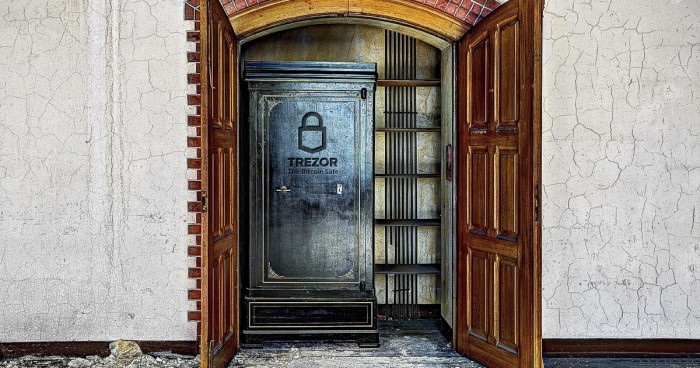
Choosing a wallet for larger amounts of bitcoins stored over a longer period of time is akin to selecting a savings account for your financial assets. It's important to prioritize security and opt for an offline storage method to minimize the risk of potential breaches. By implementing one of these offline wallet options, you can significantly enhance the protection of your bitcoins and have peace of mind knowing that your private keys are stored in a highly secure manner.
Hot Wallet
The less secure wallet type refers to wallets in which the private keys are stored and created on a device that is connected to the Internet, such as a phone, tablet, or PC. This connectivity poses a risk because if the device becomes compromised, there is a potential for your wallet to be stolen. It is important to recognize that the security of these wallets is weak and, therefore, they are generally recommended for storing smaller amounts of bitcoins. They are akin to your physical wallet, which you wouldn't use to store your retirement funds.
Regardless of the category of wallet you use, it is crucial to take additional measures to enhance the security of your wallet. Most wallets provide a password protection that encrypts your private keys, adding an extra layer of security. It is highly recommended to take advantage of this feature.
Moreover, it is essential to have a secure backup of your private keys in case they are lost or stolen. Bitcoin is designed in such a way that it becomes impossible to spend your funds if you don't have access to the corresponding private keys. Therefore, it is vital to keep this in mind and ensure that you have a secure and reliable backup of your private keys in a separate location from your primary wallet.
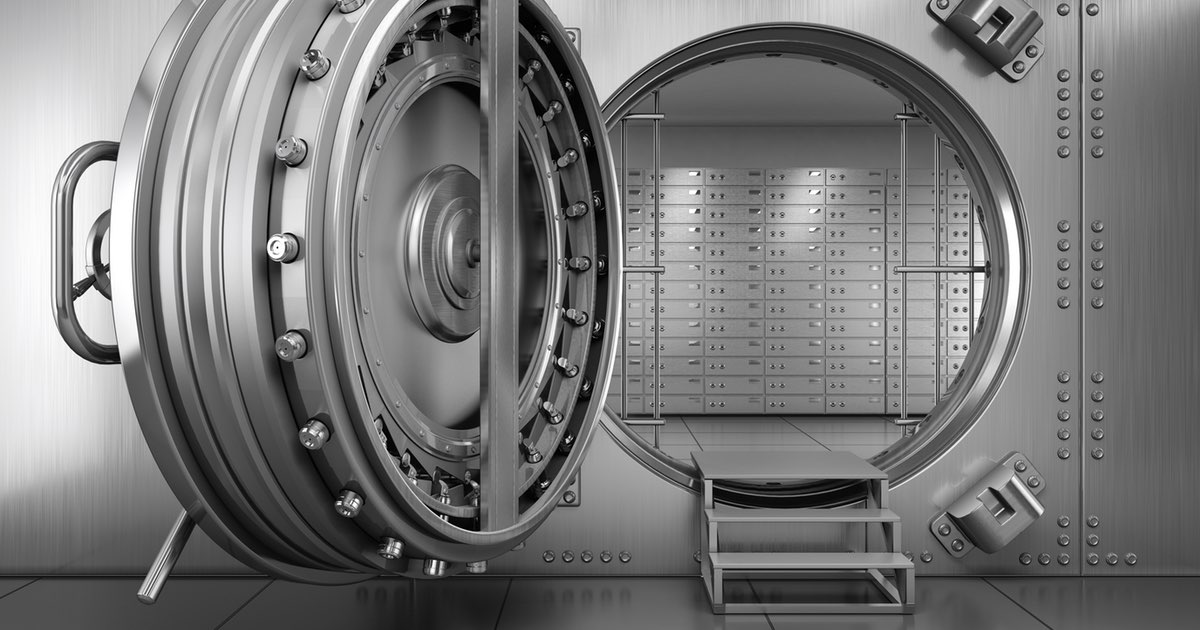
Remember, the key to securing your cryptocurrency assets is to stay vigilant and adopt all necessary precautions to protect your private keys and wallet.
Most Common Types of Wallets
Pay attention to the list below to choose the wallet that suits you best.
Hardware
Hardware wallets provide a high level of security by keeping private keys offline and inaccessible to potential hackers. This offline storage ensures that bitcoins remain secure even when connected to a potentially compromised device. As a result, hardware wallets are widely regarded as the most secure option for individuals looking to protect their digital assets.
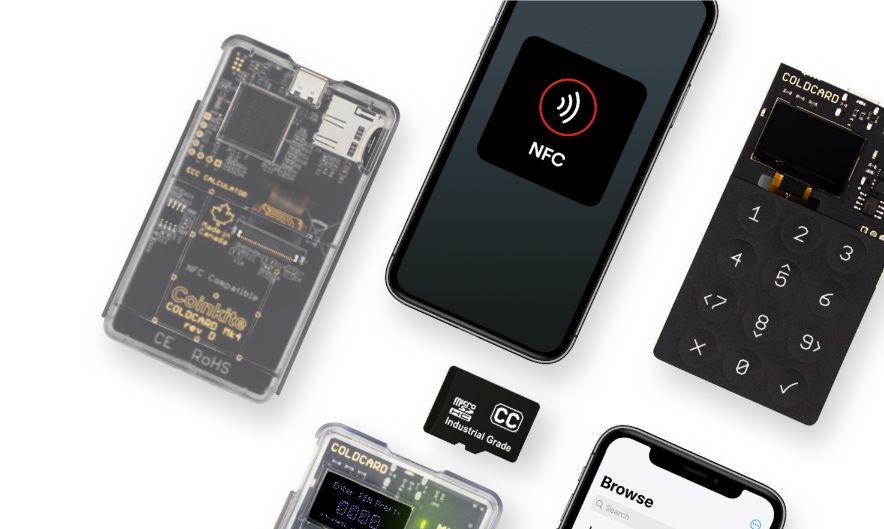
COLDCARD MK4
Coldcard is widely recognized as the most trusted and secure Bitcoin-only hardware wallet available in the market today. With its advanced features and exceptional reputation, users can have peace of mind knowing that their valuable Bitcoin assets are safeguarded with the highest level of security.
Now, the Coldcard hardware wallet has enhanced its functionality by introducing NFC (Near Field Communication) support. This feature enables seamless communication between the wallet and other devices, making transactions and interactions with Bitcoin even more convenient.
In addition to its already impressive features, Coldcard is offering an exclusive discount to its customers. By using the code "CKBTC" during purchase and making the payment in Bitcoin, you can enjoy an extra 5% discount. This offer not only provides an opportunity to save but also encourages the use of Bitcoin as a mode of payment, aligning with the wallet's main purpose.
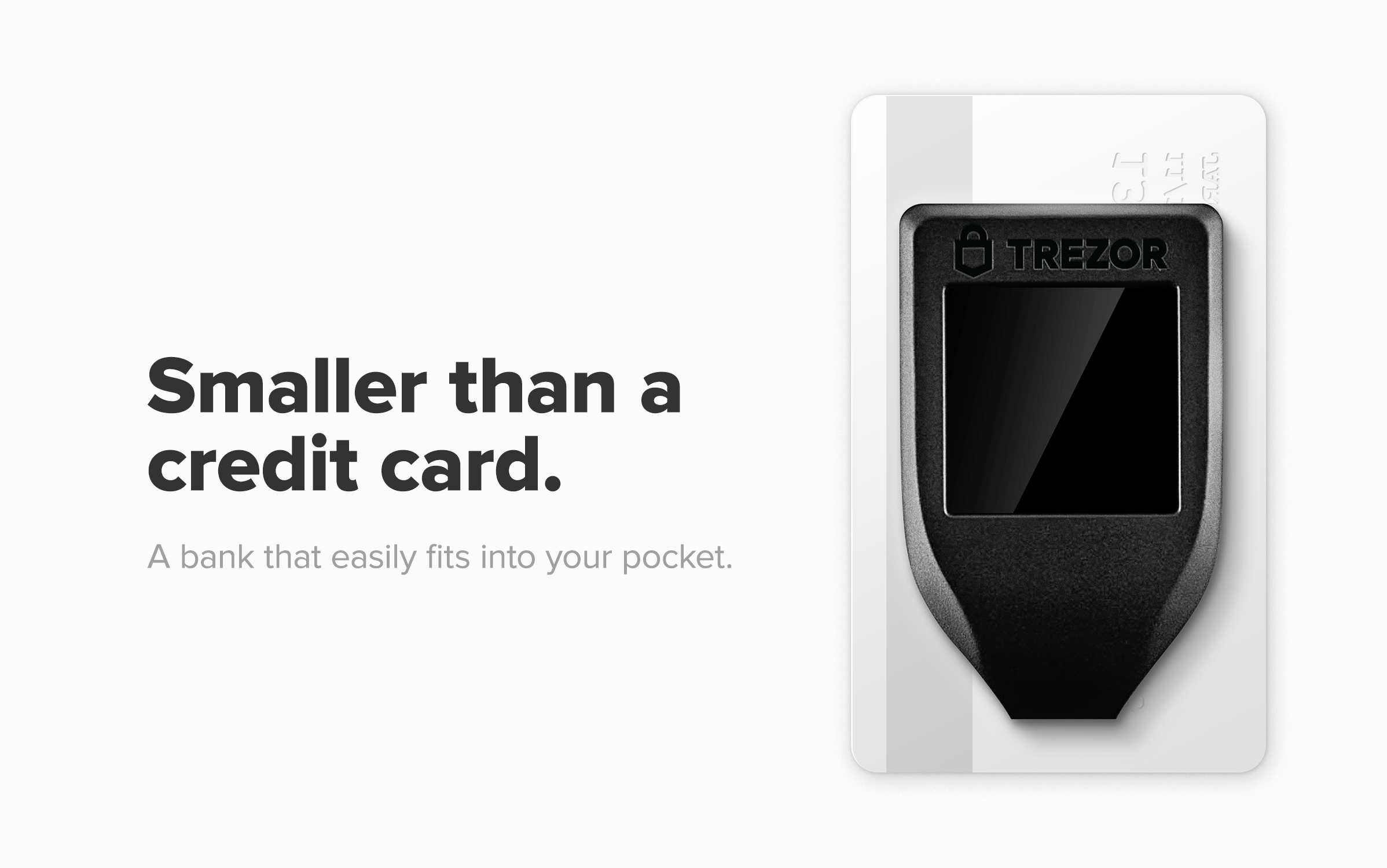
Trezor Model T
Trezor is a highly reliable hardware wallet that offers an exceptional level of security without compromising convenience. Unlike cold storage wallets, which require offline transactions and cannot be used with online devices, Trezor allows users to sign transactions while connected to the internet. This unique capability ensures that spending bitcoins remains secure, even when using a potentially compromised computer.
By combining robust security measures with online functionality, Trezor provides users with peace of mind while navigating the complex world of cryptocurrencies. The device employs various layers of encryption to safeguard private keys, ensuring they never leave the hardware wallet. This means that even in the event of a security breach on the connected computer, the private keys remain safely stored within the Trezor device.
Moreover, Trezor has implemented advanced features such as passphrase and a secure PIN code system, adding an extra layer of protection against unauthorized access. The hardware wallet's intuitive interface and user-friendly design make it easy to setup and operate, regardless of the user's technical expertise.
Trezor's ability to securely sign transactions while online simplifies the process of managing cryptocurrencies. Users can conveniently monitor their account balances, initiate transactions, and interact with various blockchain services without the constant need to disconnect and reconnect their hardware wallet.
Learn more, view Source code or go to Online wallet
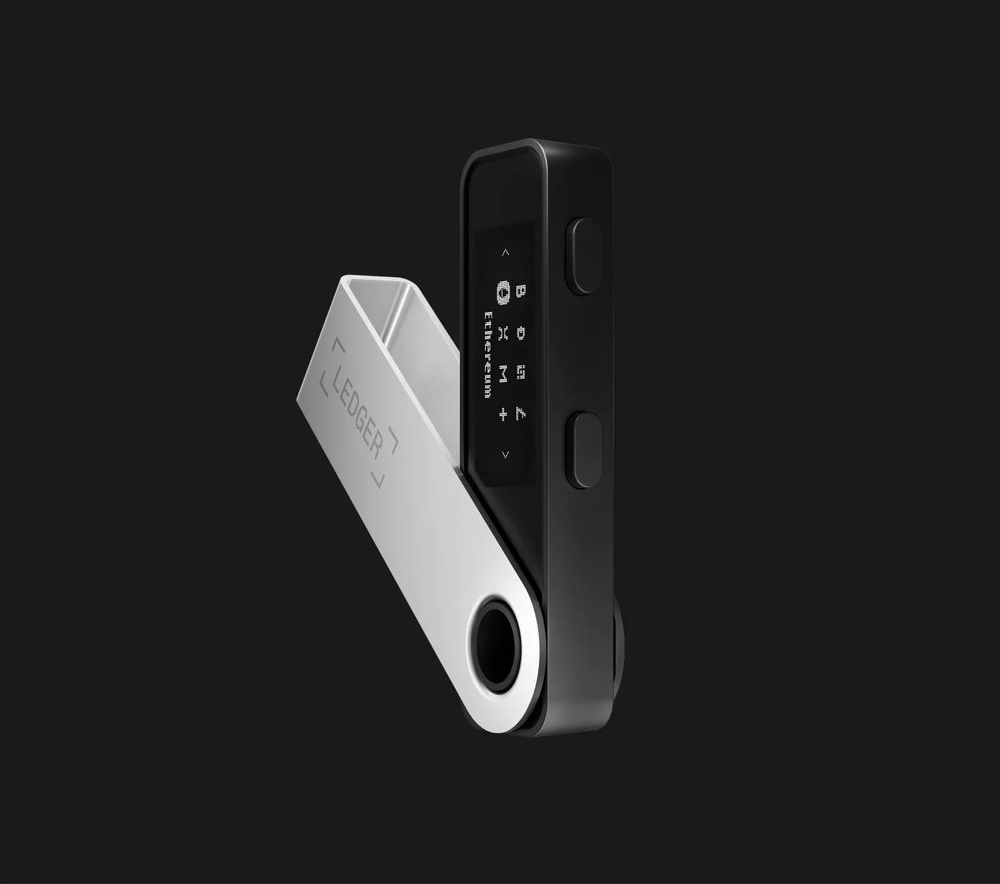
Ledger Nano S Plus
The Ledger Nano S Plus is a state-of-the-art Bitcoin hardware wallet renowned for its exceptional security features. Designed to safeguard your digital assets, it provides users with peace of mind in a world of ever-evolving cybersecurity threats.
One of the key advantages of the Ledger Nano S Plus is its ability to connect to any computer through a USB connection. This allows you to conveniently access your Bitcoin funds and conduct transactions securely, regardless of the device you are using. Whether you are using a Windows, Mac, or Linux computer, the Nano S Plus ensures compatibility and ease of use.
To further enhance security, the Ledger Nano S Plus incorporates a built-in OLED display. This display acts as an additional layer of verification, enabling you to review and confirm every transaction before it is finalized. With just a simple tap on the device's buttons, you can ensure that the transaction details are accurate and legitimate, mitigating the risk of any potential errors or fraudulent activities.
Ledger, the company behind the Nano S Plus, is committed to providing its users with the highest level of security possible. They employ various security measures, including a secure chip all designed to protect your private keys and sensitive information from potential threats.
The device is designed to be user-friendly and intuitive, allowing even those with minimal technical knowledge to navigate the wallet's functionalities with ease. Combined with its sleek and compact design, the Nano S Plus provides a seamless user experience for managing your Bitcoin holdings.
View Source code or go to Online wallet
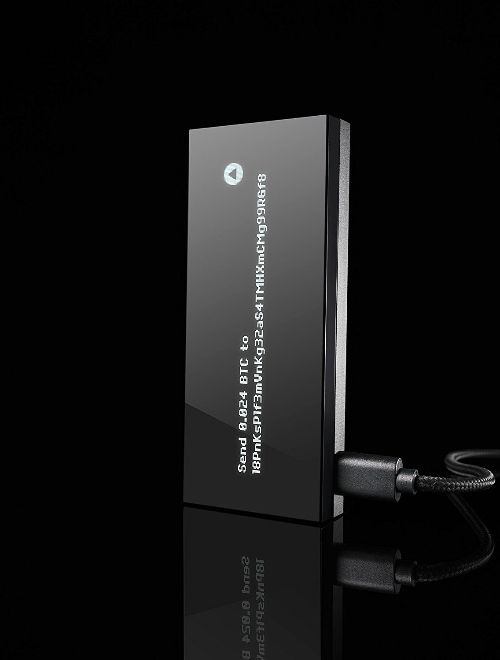
KeepKey
KeepKey is an exceptional hardware wallet designed to streamline the security of your Bitcoin. With KeepKey, you can confidently entrust your funds, knowing that every transaction you initiate is subjected to a thorough review and requires your explicit approval through its large OLED display and confirmation button.
The inclusion of an OLED display sets KeepKey apart from conventional wallets. This display serves as a visual aid, providing you with clear and crisp information about the transaction being made. This comprehensive overview ensures that you have complete visibility into the details of your Bitcoin transactions before approving them.
Once presented with the transaction details on the OLED display, you can then proceed to review key aspects such as the recipient's address, the amount of Bitcoin being sent, and relevant fees associated with the transaction. This thorough review process empowers you to catch any potential errors or suspicious activity before confirming the transaction.
By making Bitcoin security simple and accessible, KeepKey provides peace of mind for both new and experienced users. Its user-friendly interface and intuitive design guide you through the process, ensuring that you are in complete control of your funds at all times.
View Source Code or go to Online wallet
Desktop
Desktop wallets are software wallets specifically designed to operate on personal computers or laptops. They provide a secure and convenient way to store and manage your cryptocurrencies directly on your device. With desktop wallets, users have complete control over their digital assets, ensuring enhanced privacy and security.
Setting up a desktop wallet is usually a straightforward process, requiring minimal technical expertise. Users can download the wallet software from the official website or a trusted source, install it on their PC or laptop, and follow the simple setup instructions. This process typically involves creating a unique wallet address and setting up a strong password or passphrase to safeguard access to the wallet.
It's worth noting that while desktop wallets provide a high level of control and security, they are still susceptible to malware or hacking attempts if the computer or laptop is compromised. Therefore, it is crucial to prioritize the overall security of the device by using updated antivirus software, firewall protection, and practicing safe online behavior.

Bitcoin Core
Bitcoin Core is a comprehensive Bitcoin client that serves as the foundation of the entire network. As an integral part of the Bitcoin infrastructure, it provides remarkable levels of security, privacy, and stability to its users.
One of the key advantages of Bitcoin Core is its strong emphasis on security. By running a full node, users can independently verify every transaction on the blockchain, ensuring the integrity of the network. This not only protects against double-spending attacks but also enhances the overall security of Bitcoin by resisting any attempts of manipulation.
Moreover, Bitcoin Core prioritizes privacy by allowing users to retain full control over their transactions and personal information. It achieves this by placing a strong emphasis privacy preserving methods such as coin control.
However, it's worth mentioning that Bitcoin Core requires a substantial amount of space and memory to function optimally. As a full node, it maintains a complete copy of the entire blockchain, which can be resource-intensive. Nonetheless, this commitment to maintaining a copy of the entire blockchain ensures that Bitcoin Core users can independently verify transactions and contribute to the decentralization of the network.

Sparrow
Sparrow is a light Bitcoin wallet that caters specifically to individuals who prioritize financial self-sovereignty (you can connect Sparrow to your own Bitcoin Core node or Electrum server). The wallet places utmost importance on security, privacy, and usability, ensuring that users have full control over their funds and personal information.
One of Sparrow's key features is its support for hardware wallets, which provide an additional layer of security by storing private keys offline. This feature ensures that even if your computer or mobile device is compromised, your Bitcoin remains secure.
Another notable feature offered by Sparrow is multi-signature support. Multisig involves multiple parties authorizing transactions, adding an extra level of protection against unauthorized access or theft. This feature allows for enhanced collaboration and control when managing funds.
Sparrow also integrates Samourai's coinjoin, which is a privacy-enhancing technique that further anonymizes Bitcoin transactions. By mixing your transactions with others, it becomes incredibly difficult to trace the origin or destination of the funds. This not only protects your privacy but also helps maintain the fungibility of Bitcoin, ensuring that every unit is interchangeable.
Full PSBT (Partially Signed Bitcoin Transaction) allows for transactions to be partially signed offline and then completed online, enhancing security by minimizing exposure to potential vulnerabilities.
Lastly, Sparrow offers the ability to send and receive funds using PayNyms - pseudonymous identifiers that function similarly to Bitcoin addresses but provide enhanced privacy features. They make it easier to transact with others while minimizing the risk of exposing your personal Bitcoin address.

Electrum
Electrum is designed with a primary focus on speed and simplicity, aiming to provide users with a lightweight and efficient Bitcoin wallet experience.
One of the key features of Electrum is its utilization of remote servers to handle the complex aspects of the Bitcoin system. These servers, known as Electrum servers, perform resource-intensive tasks such as verifying transactions and maintaining the blockchain. By offloading these operations to remote servers, Electrum ensures a seamless user experience without burdening the user's device. However, this comes at the cost of privacy so it's recommended to connect Electrum to your own Electrum server.
Another notable feature of Electrum is its capacity to recover wallets using a secret phrase. This secret phrase, also known as a seed or mnemonic phrase, is a sequence of words generated by Electrum during the wallet creation process. It serves as a backup mechanism that enables users to restore their wallet and regain access to their funds in case of device loss, damage, or theft. By simply inputting their secret phrase into a new installation of Electrum, users can retrieve their entire wallet, including all associated transactions and balances. Please note that Electrum uses a different standard from more common BIP39.
In addition to its primary function as a Bitcoin wallet, Electrum goes a step further by incorporating its own Lightning Network functionality. The Lightning Network is a second-layer scaling solution for Bitcoin that enables faster and cheaper transactions by opening payment channels between users. By integrating this functionality, Electrum empowers its users with the ability to make instant, low-cost, and private transactions.

Specter
Specter, a desktop Graphical User Interface (GUI), is specifically designed to enhance the functionality of Bitcoin Core by seamlessly integrating with hardware wallets and multisignature (multisig) setups. By optimizing its features and capabilities, Specter provides users with a robust and user-friendly platform for managing their Bitcoin transactions securely.
Hardware wallets, such as Ledger or Trezor, provide an additional layer of security by storing private keys offline. Specter takes advantage of this hardware wallet compatibility, allowing users to easily access and manage these offline keys within Bitcoin Core. This integration simplifies the process of signing transactions while keeping the private keys securely stored on the hardware wallet, therefore minimizing the risk of theft or compromise.
In addition to hardware wallet integration, Specter also focuses on facilitating multisig transactions. Specter streamlines the management of multisig setups, providing an intuitive user interface to create, manage, and interact with multisignature addresses and transactions.
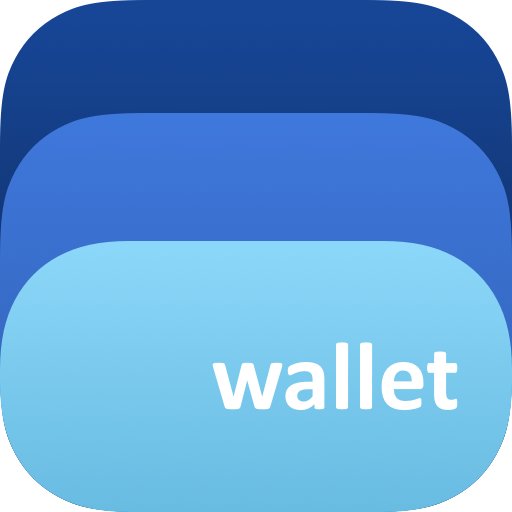
BlueWallet
BlueWallet is an incredibly user-friendly and robust Bitcoin desktop wallet, characterized by its simplicity and functionality. This wallet goes beyond traditional on-chain transactions, enabling users to seamlessly process both on-chain and off-chain (lightning) payments.
One of the standout features of BlueWallet is its intuitive interface, designed to make the Bitcoin experience accessible to everyone, irrespective of their technical expertise. The wallet's user-friendly design ensures a smooth onboarding process, making it easy for newcomers to delve into the world of Bitcoin with confidence.
BlueWallet's power lies in its ability to handle not only regular on-chain transactions but also lightning payments. The lightning network is a layer-2 solution built on top of Bitcoin, allowing for near-instant and low-cost transactions.
In addition to its support for lightning payments, BlueWallet also possesses a robust set of features. Users can create multiple wallets within the application, manage their Bitcoin addresses, and monitor their transaction history. The wallet's comprehensive functionality extends to features such as address labeling, QR code support for sending and receiving payments, and the ability to import and export wallets.
BlueWallet ensures the security of funds by retaining private keys solely on the user's device. This means that users have full control over their Bitcoin and can confidently manage it without the reliance on third parties.

GreenAddress
Green is not only a fast and easy-to-use wallet but also prioritizes the security of your digital assets. By adopting a minimal/zero-trust approach, Green ensures that your funds are protected at all times. With optional hardware wallet support, you can further enhance the security of your wallet by storing your private keys on a separate device, keeping them isolated from potential online threats.
In addition to strong security measures, Green offers a seamless user experience with its intuitive interface. The wallet's speed and efficiency allow for swift transactions, making it convenient for everyday use.
Another noteworthy feature of Green is its multisignature-based two-factor authentication (2FA). This advanced security measure requires multiple signatures for transactions, reducing the risk of unauthorized access to your funds. This additional layer of protection ensures that only you have control over your wallet's activities.
Overall, Green offers a comprehensive package of security features, user-friendly design, and convenient functionalities that make it an ideal choice for anyone seeking a reliable and efficient digital wallet.
Phone
Phone wallets provide a convenient solution for carrying your bitcoins with you wherever you go, ensuring their portability. With a phone wallet, you have the flexibility to make instant payments at bars, restaurants, and various physical stores, allowing for seamless transactions on the spot.
However, it's important to be mindful of the security risks associated with carrying significant amounts of cryptocurrency on your phone. Since phones are often targeted by pickpockets and can be easily misplaced or stolen, it is advisable to store only a limited amount of coins on your wallet. This way, you minimize potential losses and mitigate the impact of theft or loss.
For larger or long-term investments, it is recommended to store them in more secure offline storage options, such as hardware wallets or cold storage methods, ensuring enhanced protection against potential threats.

GreenAddress
Green wallet is a straightforward and reliable Bitcoin wallet that also offers support for Liquid. Developed by Blockstream, the industry leader in Bitcoin wallet technology, Blockstream Green stands out by providing its users with an unmatched combination of robust security measures and user-friendly features.
With Green, users can securely store, send, and receive Bitcoin, as well as transact with Liquid assets. The inclusion of Liquid support expands the functionality of the wallet, enabling users to take advantage of the advanced capabilities offered by the Liquid Network.
Security is of paramount importance in the world of cryptocurrencies, and Blockstream Green addresses this concern effectively. The wallet implements top-of-the-line security features and practices to ensure that users' funds remain protected at all times. It utilizes a 2-of-2 Multi-Signature scheme, which requires approval from both the user and Blockstream before any transaction can be completed. This mechanism provides an added layer of protection against unauthorized access or fraudulent activities.
In addition to its robust security measures, Blockstream Green emphasizes ease-of-use. The wallet's user-friendly interface simplifies the Bitcoin experience for both newcomers and experienced users alike. Its straightforward design and intuitive navigation make it easy to manage your Bitcoin transactions, view your balance, and monitor the overall performance of your wallet.

BlueWallet
Blue Wallet is a mobile application designed to facilitate Bitcoin usage and transactions. With its user-friendly interface and robust security features, it has become a popular choice for both beginners and experienced Bitcoin users. The wallet allows users to store, receive, and send Bitcoin easily from their smartphones, making it a convenient tool for managing one's digital assets on the go.
One of the standout features of the Blue Wallet is its multi-signature functionality, allowing users to set up multiple signatures to approve transactions, thus enhancing security measures. The Blue Wallet also incorporates encrypted backups and is compatible with hardware wallets, further safeguarding users' funds.
Moreover, the Blue Wallet offers a range of advanced features to enhance the Bitcoin experience. Users can benefit from Lightning Network integration, which enables fast and cost-effective transactions by leveraging off-chain solutions.

Nunchuk
Nunchuk is a pioneering platform in the realm of collaborative custody on mobile. It serves as an easy-to-use multiuser multisignature wallet, offering enhanced security and control for handling Bitcoin transactions.
One of the key advantages of Nunchuk is its elimination of a single point of failure. It achieves this by requiring a predetermined minimum threshold of keys to be provided before any Bitcoin can be spent. By distributing the responsibility for authorizing transactions across multiple parties, Nunchuk significantly reduces the risk of unauthorized access or security breaches.
Not only that, but you can also use Nunchuk with Coldcard and Tapsigner to create the ultimate multisignature wallet right on your iPhone.
Privacy is also a paramount concern for Nunchuk. All communication that takes place between the involved parties is encrypted, ensuring that the data remains secure and confidential. Notably, even Nunchuk itself does not have access to this sensitive information.
By combining collaborative custody, multisignature technology, and encryption, Nunchuk provides a robust and trustworthy solution for managing Bitcoin assets. Users can confidently engage in transactions, knowing that their funds are safeguarded and private.

Coinomi
Coinomi is a versatile digital wallet solution that offers a wide range of features and benefits. As a lightweight application, it consumes minimal resources on your device, ensuring optimal performance. Its commitment to security is paramount, as it employs advanced encryption techniques to safeguard your funds.
Coinomi's universality is another noteworthy aspect. While it initially gained popularity as a Bitcoin wallet, it has expanded its support to encompass a multitude of altcoins. This versatility allows users to manage multiple cryptocurrencies within a single interface, providing convenience and ease of use.
The wallet utilizes hierarchical deterministic (HD) technology, which generates a unique master seed that acts as a basis for all your private keys. This ensures that all transactions and addresses are derived from a single source, making it effortless to manage and back up your wallet. In fact, you only need to create a backup once to secure all your funds, minimizing the risk of losing access to your assets.
View Source code
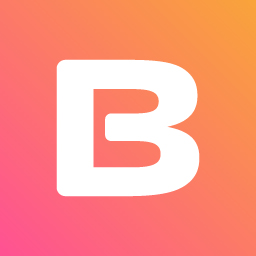
BRD
Simplicity lies at the heart of BRD's design principles. The emphasis on simplicity means that breadwallet prioritizes ease of use and a streamlined experience for its users. The intention is to provide a user-friendly interface that eliminates any unnecessary complexities, ensuring that anyone, regardless of their technical expertise, can navigate the platform with ease and confidence.
It also supports the ability to buy Bitcoin directly from within the app using various payment methods, making it convenient for users to acquire Bitcoin without having to use external exchanges.
View Source code

Edge
One of the standout features of Edge wallets is the automatic encryption of all user data. This means that your digital assets and personal information are always protected, providing you with peace of mind in an increasingly digital world. By ensuring that your information is encrypted, Edge helps safeguard your funds from potential security breaches or unauthorized access.
Another essential aspect that sets Edge apart is its automatic backup functionality. Losing access to a crypto wallet can be a devastating experience, resulting in the permanent loss of funds. However, Edge ensures that you never face such a risk, as it automatically backs up your wallet data. So even if you lose your phone or encounter any other unforeseen circumstance, you can easily recover your wallet and restore access to your funds.
In addition to encryption and automatic backup, Edge demonstrates its commitment to user satisfaction by functioning seamlessly even when Airbitz servers are down. This resilience ensures that you can still manage your Bitcoin transactions and access your funds, even in situations where the backend infrastructure experiences temporary interruptions or outages. This feature underscores the decentralized nature of Edge, empowering users to maintain control and reliability in their cryptocurrency operations.
View Source code

Bitcoin Wallet
Bitcoin Wallet for Android is a user-friendly and dependable application that offers both convenience and peace of mind. Designed to be secure and fast, it prioritizes the principles of decentralization and zero trust, ensuring that no central authority or intermediary is required for Bitcoin-related transactions or operations.
With an emphasis on user-friendliness, this app is an excellent option for individuals who may not possess advanced technical knowledge or expertise in the realm of cryptocurrencies. Its straightforward and intuitive interface makes it easy to navigate and understand, allowing users to effortlessly manage their Bitcoin holdings without feeling overwhelmed by complex technical jargon or intricate processes.
Moreover, the app's commitment to decentralization means that users have full control over their Bitcoin assets and are not reliant on any central service or authority. This empowers individuals to manage their own finances independently and without unnecessary intermediaries.
View Source code
Paper
A paper wallet serves as a secure method for storing cryptocurrency. It involves printing the private key, which is essentially a random string of characters, onto a piece of paper. This private key can be further represented as a QR code for ease of use. Additionally, some paper wallets also include the associated wallet address, allowing you to conveniently check your balance without needing to import the private key to another wallet.
While paper offers an effective offline storage solution, its vulnerability to damage and degradation necessitates careful handling. Therefore, it is advisable to keep your paper wallet in a secure and reliable location, such as a physical vault, safe, or lockbox. By choosing a suitable storage option, you can protect your paper wallet from the potential risks of physical damage, theft, or loss. Remember, the safety and accessibility of your cryptocurrency holdings depend on the responsible safeguarding of your paper wallet.
Web
While web wallets are indeed the most accessible and user-friendly option, it is important to consider the trade-off between convenience and security. The primary concern with web wallets is that, in most cases, the control of your private keys lies with the wallet provider. When you don't possess your private keys, you effectively relinquish full ownership and control of your bitcoins.
The potential risk of using web wallets is underscored by the fact that there have been instances where service providers have absconded with users' bitcoins, leading to significant financial losses. Such incidents serve as a cautionary tale and highlight the importance of being vigilant and informed when choosing a wallet.
Thus, we strongly discourage the use of web wallets unless absolutely necessary. If you do opt for a web wallet, ensure it is from a reputable and trusted provider with a strong track record. Conduct thorough research, read user reviews, and consider alternative options to make an informed decision.
For greater security and control over your bitcoins, it is advisable to explore alternatives such as software wallets, hardware wallets, or paper wallets. These options provide you with full control and direct ownership of your private keys, thereby reducing the risk of losing your funds to unscrupulous actors.
Remember, protecting your cryptocurrency assets is of paramount importance. By being cautious and proactive, you can safeguard your bitcoins and mitigate the potential risks associated with using web wallets.







